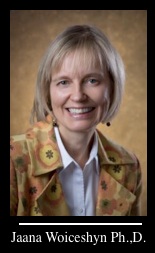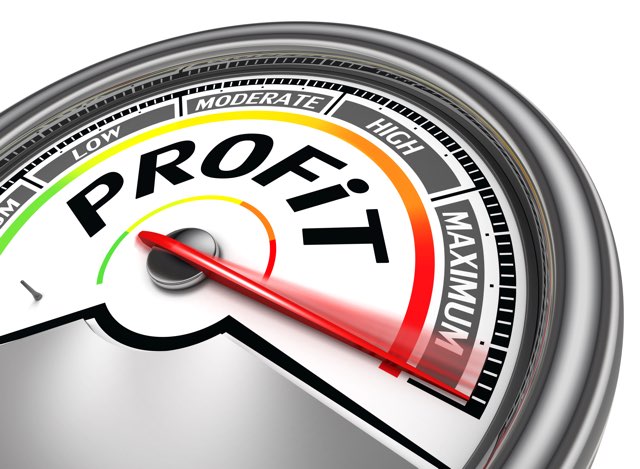 To many, profit maximization seems cold, heartless, even exploitative. They consider business immoral and the profit-seeking corporate model to be in need of reform. The advocated reform is for corporations to adopt “social” goals—reducing poverty, protecting the environment, increasing social justice, and the like.
To many, profit maximization seems cold, heartless, even exploitative. They consider business immoral and the profit-seeking corporate model to be in need of reform. The advocated reform is for corporations to adopt “social” goals—reducing poverty, protecting the environment, increasing social justice, and the like.
The corporate reform movement is not new. Almost 50 years ago, Milton Friedman, the Nobel-Prize-winning economist, was observing “the already too prevalent view that the pursuit of profits is wicked and immoral and must be curbed and controlled by external forces.” A critic of “corporate social responsibility,” Friedman remains one of the few defenders of profit making, along with novelist-philosopher Ayn Rand.
Since Friedman’s 1970 article, “The Social responsibility of Business Is to Increase Its Profits”, the corporate reform movement has grown stronger, as Terence Corcoran writes in an excellent Financial Post article. As evidence, Corcoran notes recent books: Prosperity: Better Business Makes the Greater Good (2018) by Colin Mayer, a business school professor(!) at Oxford University, and Re-imagining Capitalism (2016), edited by Dominic Barton, former head of McKinsey & Co, and Dezsö Horvath, dean of Schulich School of Business, York University. Both denounce profit making and capitalism, as do business leaders such as the former CEO of Unilever Paul Polman and BlackRock CEO Larry Fink, prominent proponents of “social purpose” for business.
Profit seeking and capitalism are natural and beneficial and provide the proper moral purpose for business.
Corcoran reports that in Prosperity, Mayer denounces “the Friedman doctrine” [defense of profit-making and capitalism] as “unnatural” and claims that it will destroy nature and society. The longer it is supported, Mayer writes “the greater will be the damage it inflicts on our societies, the natural environment, and ourselves.”
But is the profit-maximizing corporate model in need of reform? Are profit making and capitalism unnatural and destructive and “wicked and immoral,” as the reformers argue?
Channeling Friedman and drawing from the philosophical foundation of rational self-interest in Rand’s philosophy of Objectivism, I argue “no.” Profit seeking and capitalism are natural and beneficial and provide the proper moral purpose for business.
Profit seeking is natural. Contrary to arguments of Mayer, profit seeking is natural: it is consistent with the requirements of human survival and flourishing. Many corporate critics reject those as the standard of value and instead adopt environment untouched by humans, or equality of income and wealth, both of which contradict the requirements of human survival and flourishing.
Humans survive and flourish through one primary means: the use of reason, to achieve self-interest, their values. We must achieve values, from energy, food and shelter to cell phones—not lose them. We create material values by shaping nature to meet our needs.
Profit seeking is self-interested value pursuit that, when achieved, makes the lives of corporate shareholders, as well as of their trading partners (employees, customers, and suppliers) better by providing them the material means of survival. Seeking and making profits does not harm anyone, as long as there is no deception or fraud involved. If there is, then profit making is not in the shareholders’ nor in anyone else’s interest and not sustainable.
The use of reason has but one social requirement: freedom. In order to think and act on our thinking, we must be free of coercion and fraud. We must be free to create material values, trade with whomever is willing, and own private property. That is made possible by capitalism, which Ayn Rand defines as “the social system based on the recognition of individual rights, including property rights, in which all property is privately owned.”
Freedom and profit seeking under capitalism do not damage “societies, the natural environment, and ourselves.” The individual rights to life, liberty, property, and the pursuit of happiness protect an individual’s freedom to act in a social context. They do not permit a person to do whatever he feels like, on a whim, as everyone else has the same rights that the government (under capitalism) protects.
Freedom, ensured by individual rights, and profit making do not damage “societies.” As Friedman observes, “society is a collection of individuals and the groups they voluntarily form.” Damaging society would mean damaging its individual members through coercion or fraud—which the protection of the individual rights deters and punishes. Similarly, when all property is privately owned, property rights protect against pollution and damage by others (and self-interest motivates protection of one’s own property). Finally, freedom and profit making do not damage “ourselves” but makes our survival and flourishing possible.
Profit maximization is the proper moral purpose of business. Profits can be maximized only when superior value is being created. Profits don’t emerge out of nothing: a company must create products or services that customers are willing to pay for more than it costs the company to produce them. In other words, companies must provide value to customers before they can create value for shareholders. Such value creation requires the voluntary collaboration of multiple partners, from employees to supplier to creditors, which can only be obtained by trading with them fairly.
While profit maximization is the purpose that motivates shareholders’ investment, it is only possible through production and trade of material values, the stuff of our survival and flourishing. Therefore, profit maximization is moral.
Jaana Woiceshyn teaches business ethics and competitive strategy at the Haskayne School of Business, University of Calgary, Canada. She has lectured and conducted seminars on business ethics to undergraduate, MBA and Executive MBA students, and to various corporate audiences for over 20 years both in Canada and abroad. Before earning her Ph.D. from the Wharton School of Business, University of Pennsylvania, she helped turn around a small business in Finland and worked for a consulting firm in Canada. Jaana’s research on technological change and innovation, value creation by business, executive decision-making, and business ethics has been published in various academic and professional journals and books. “How to Be Profitable and Moral” is her first solo-authored book.


